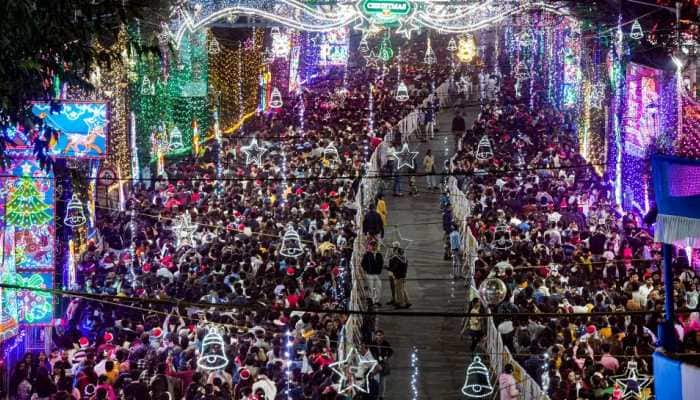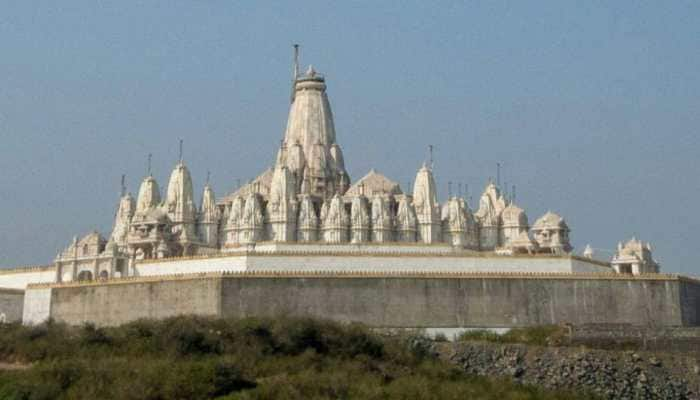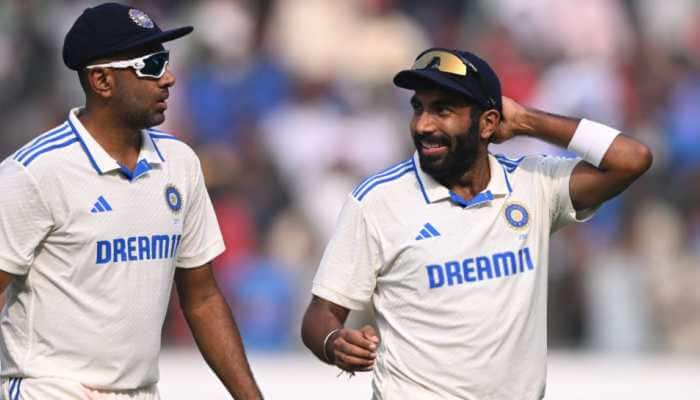Dilip Kumar dies at 98: Legacy that made him the Tragedy King
Muhammad Yousuf Khan, known as Dilip Kumar was born in a Peshawari Pashtun family of 12 children in Pakistan.
Trending Photos
)
There will not be a single tearless eye in the entire country with the passing away of the legend – Dilip Kumar. His stature in Bollywood is unmatched and his name will be etched in the history of filmmaking as the 'Tragedy King' forever and ever.
Dr Jalil Parkar, the pulmonologist who was treating Dilip Kumar at Mumbai's PD Hinduja Hospital confirmed the news. Known as the 'Tragedy King' of Bollywood, the legendary star breathed his last at 7:30 AM on Wednesday, July 7, 2021.
Muhammad Yousuf Khan, known as Dilip Kumar was born in a Peshawari Pashtun family of 12 children in Pakistan. After completing his education, Kumar started his own business as a canteen owner and a dry fruit supplier. Venturing into acting was something that happened to Dilip Kumar out of the blue. Had the owners of ‘Bombay Talkies’ -actress Devika Rani, and her husband Himanshu Rai - not noticed and given him a break in ‘Jwar Bhata’, Bollywood would have been void of some of the best cinema it has produced.
Though his first movie in 1944 didn’t create ripples at the box office, his next movie ‘Jugnu’ in 1947, gave him much-needed recognition in Bollywood. There was no looking back for the actor after this, as he gave an array of successful movies like ‘Shaheed’, ‘Andaz’, ‘Jogan’, ‘Deedar’, ‘Daag’, ‘Devdas’, ‘Yahudi’ and ‘Madhumati’. In an interview given to a popular magazine, Dilip Kumar had stated that the title ‘Tragedy King’ was ‘disturbing his personal peace’ so much so that he decided to challenge himself by undertaking light-hearted roles.
Movies like ‘Azaad’, ‘Naya Daur’ and ‘Kohinoor’ - which portrayed Dilip Kumar - proved his mettle of being a versatile actor. In 1960, he wooed the audience with his skillful portrayal of Prince Salim in the classic period film ‘Mughal-e-Azam’. After his success as an actor, Dilip Kumar ventured into production with ‘Ganga Jamuna’, in which he starred along with his brother Nasir Khan. This movie received widespread critical acclaim.
Dilip Kumar’s acting prowess drew the attention of British director David Lean, who in 1962 offered him the role of ‘Sherif Ali’ in his film ‘Lawrence of Arabia’. But Dilip Kumar turned down the offer and decided to stick to Bollywood, which he believed was his permanent market.
Kumar took a break from the world of showbiz only to return in 1981 with multi-starrer ‘Kranti’, which was followed by box office hits like ‘Vidhaata’, ‘Shakti’ and ‘Karma’.
Dilip Sahab's life has had its share of accolades and awards. He was the first actor in Hindi Film Industry to receive the Filmfare Best Actor Award. He holds the ‘Guinness World Record’ for winning the most number of awards by an Indian actor.
He shares the most number of Filmfare Awards for Best Actor with Shah Rukh Khan (who admitted being influenced by Dilip Sahab in his early life). Apart from this, he has also been honoured by the Government of India with the Padma Bhushan award in 1991 and the Dadasaheb Phalke Award in 1994, for his contribution to Bollywood. The Pakistan government also bestowed him with the honorary award of ‘Nishan-e-Imtiaz’, the highest civilian award.
It is difficult to pen down what his loss means to the industry. He was an icon unto himself, a cult star like no other. Like every star, he had his share of controversies, but Saira Banu and his love story is stuff for legends. The magic that Dilip Sahab wove on the big screen, his nuances, his dialogue delivery, his panache - all aspiring actors look up to him, take inspiration from his life and work.
Though this star from the golden era is no more, his reminiscences will remain etched in our memories in the form of unforgettable characters.
You will be dearly missed, Dilip Saab!
Stay informed on all the latest news, real-time breaking news updates, and follow all the important headlines in india news and world News on Zee News.
Live Tv







)
)
)
)
)
)
)
)
)
)
